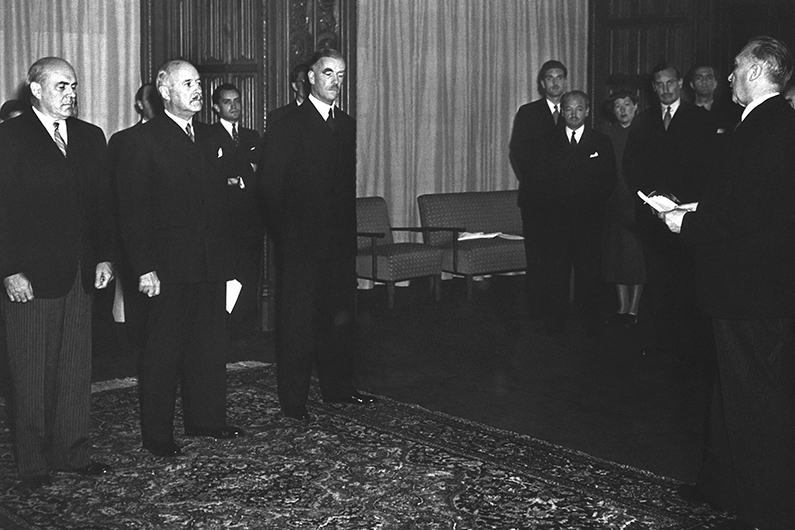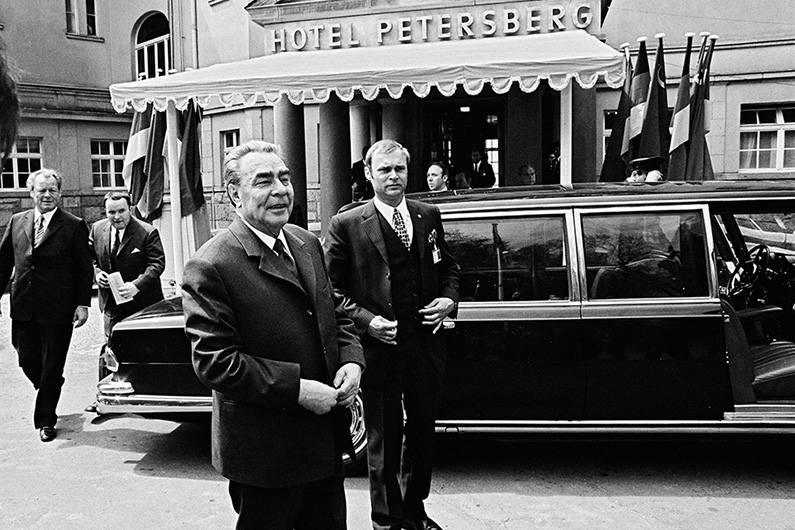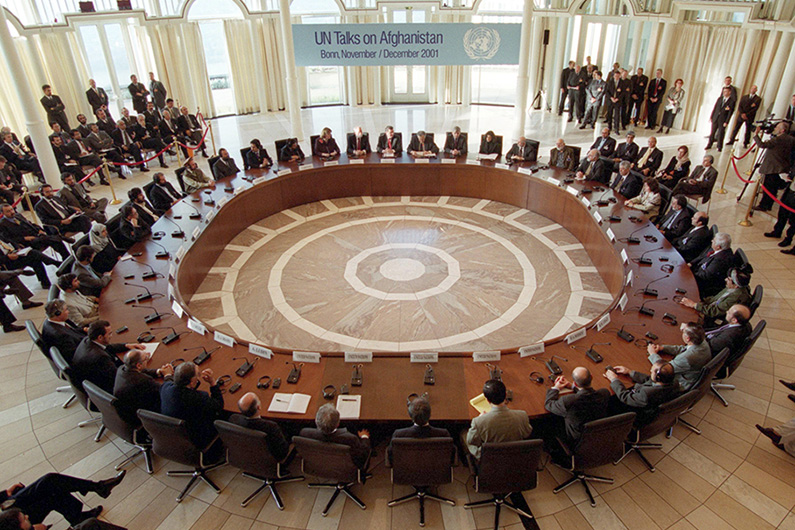On 24 May 1949, the Federal Republic of Germany’s Basic Law came into effect. In September of that same year, the Bundestag and Parliamentary Council moved into the Bundeshaus and Chancellor Konrad Adenauer formed the Federal Republic’s first government; on 12 September 1949, the Federal Assembly elected a Federal President as head of state.
However, the Allied Occupation, which began upon the defeat of the Nazi regime by the Allies in 1945, wasn’t over yet, given that in September 1949, the Allied High Commission commandeered the luxurious Hotel Petersberg, located on one of the Siebengebirge mountains, as its headquarters. British Prime Minister Neville Chamberlain stayed in this very same hotel in 1938 in the lead-up to his meeting with Hitler, which resulted in the Munich Agreement. The fact that the Allies chose to locate their headquarters on a mountaintop sent a clear signal that in Germany, the Allied Commission was in charge.
The Commission oversaw the Occupation Statute, which the victorious Allies adopted in April 1949 and promulgated on 10 May of that year. The Statute stated as follows: “During the period in which it is necessary that the occupation continue, the Governments of France, the United States and the United Kingdom desire and intend that the German people shall enjoy self-government to the maximum possible degree consistent with such occupation. The Federal State and the participating Länder shall have, subject only to these limitations, full legislative executive and judicial powers in accordance with the Basic Law and with their respective constitutions”. That meant that in effect, the Federal Republic enjoyed national sovereignty to a limited degree only. The occupation authorities made all decisions concerning Germany’s foreign policy, foreign trade, currency transactions, reparations and demilitarisation. They also reserved the right “acting under instructions of their Governments, to resume, in whole or in part, the exercise of full authority if they consider that to do so is essential to security or to preserve democratic government in Germany or in pursuance of the international obligations of their Governments.”
Chancellor Konrad Adenauer was feeling very self-confident on the occasion of his first visit to the occupation authority headquarters on 21 September 1949, given that, prior to the meeting, he had managed to persuade Allied High Commissioners John J. McCloy, Brian Robertson and André François-Poncet to treat the hand-over of the Occupation Statute as a less momentous occasion than originally planned. “The High Commissioners,” Adenauer wrote in his memoirs, “had originally intended to receive me while standing on a carpet in front of which I would be standing” – the idea being that Adenauer would not step on the carpet until he had given a speech.



